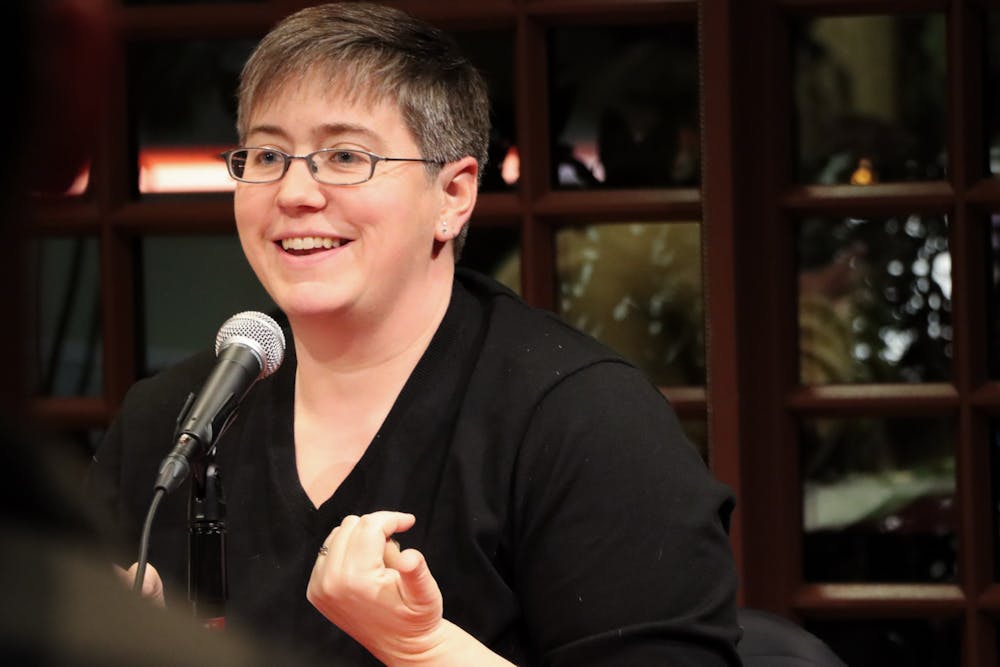Kelly Writers House hosted a conversation on Wednesday evening featuring playwright and Pulitzer Prize finalist for Drama Madeleine George, who discussed the difficulties on writing plays about climate change and the importance of theatrical productions sustainability.
The event was moderated by College senior Samantha Friskey, who wrote a play about sustainability for her senior thesis. George cited verb tense issues, material waste created by theatrical productions, and the human-centric nature of plays as several reasons climate change is difficult to write about.
George, a resident playwright at the New Dramatists organization in New York and a professor at Bard College, was nominated for a Pulitzer Prize in 2014 for writing "The (curious case of the) Watson Intelligence." She also won a MacDowell Fellowship and a 2016 Whiting Award in Drama for her work.
George said she began working on her play, "Hurricane Diane" in 2010, but during the play's theatrical production in 2019, the language concerning climate change was already outdated. The main character gives a monologue in which she claims the "glaciers are going to melt," using the future tense. George said the language became inaccurate, because rising temperatures are already causing glaciers to melt.
George said the "exponential increase in speed" of climate change makes writing in the accurate verb tense difficult.
“Theater is so slow," George said. "It takes years if you’re very, very lucky to have your play produced. So it’s not a rapid response media."

College senior Samatha Friskey moderated the event.
George added that theatrical productions tend to focus on the "human scale part of the problem, like questions of guilt, questions of complacency, or questions of betrayal." Plays are also not a sufficient media for crafting systemic solutions to societal problems, George added.
RELATED:
Author Jacob Edmond explains the role of repetition in poetry and media at Penn event
Kelly Writers House hosts first Latina Poetry Night with renowned poets
Friskey raised concerns about the sustainability of theatrical productions, using her own play, "All the Dead Frogs," as an example. She said she wanted a seven-foot cardboard iceberg in the background of her production, but questioned whether the message of sustainability in her play outweighed the costs of leaving a large cardboard prop in the landfill after the production was over.
George said she too considers the environmental implications of her stage productions, citing her own experience with the Superhero Clubhouse in New York, an ecological theatre group who attended her play. George said the theatre group suggested various practices playwrights can use to keep their productions sustainable that she had not previously known.
Despite difficulties, Friskey said centering her own play around climate change eased her personal fears about the environment. She added that she hopes her work encourages people to think critically about their own impact on the environment.









